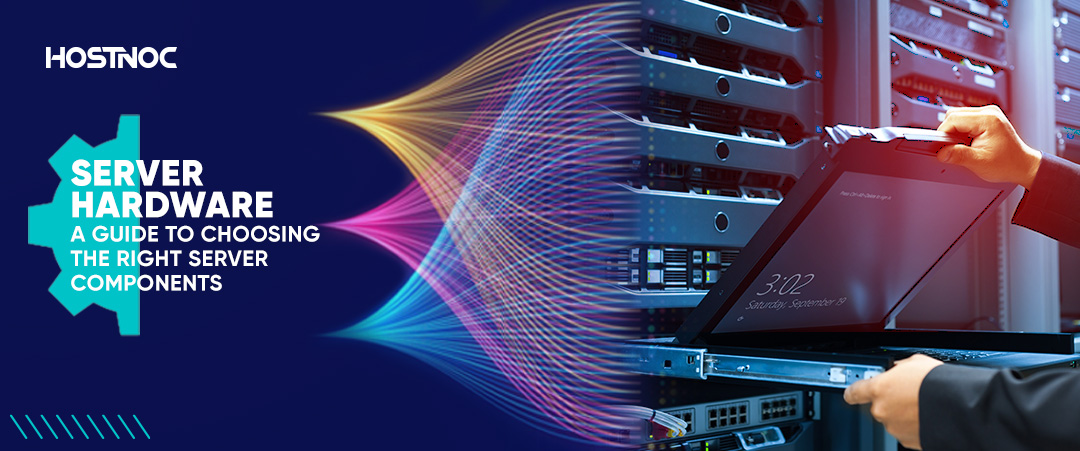Blogs
Home / Blog


Server operating systems (OS) form the critical backbone of modern IT infrastructure, providing the platform to manage hardware resources, host applications and handle multiple client requests simultaneously. Choosing the right server operating system can significantly impact your organization’s performance, security, scalability and cost-effectiveness.
This guide explores the most popular server operating systems, their key features and factors to consider when selecting the best solution for your needs.
A server operating system is a specialized version of an operating system designed to manage and coordinate server hardware. Unlike desktop operating systems, which are built for individual users, server operating systems are optimized for stability, security and resource management in environments with many concurrent users or systems. Server operating systems also offer tools for network administration, user management and software deployment, making them integral to maintaining IT ecosystems.

Server operating systems are built to support multiple users accessing system resources simultaneously. This feature is essential for file servers, web servers and database servers that need to handle numerous concurrent connections without compromising performance.
Security features are a critical part of any server operating system. These include advanced firewall configurations, user authentication mechanisms, encryption and regular security patches. Server operating systems typically offer role-based access control (RBAC) to limit user permissions and prevent unauthorized actions.
Given the nature of server operations, remote management tools are essential. Server operating systems provide robust features for remotely configuring, server monitoring and troubleshooting servers without needing physical access.
Many modern server operating systems support virtualization, allowing the creation and management of virtual machines (VMs). Virtualization helps businesses maximize their hardware resources by running multiple operating system instances on a single server.
To prevent downtime, server operating systems often come with high availability features like clustering, load balancing and failover mechanisms. These ensure continuous uptime by redistributing workloads in case of hardware or software failure.
Buy now from Dedicated hosting server
A good server operating system allows for scalability, whether it is adding more users, applications or hardware resources. Server operating systems are designed to handle increasing workloads without degradation in performance.
Linux is one of the most popular and widely used server operating system platforms due to its open-source nature, flexibility and strong community support. Linux server operating system distributions are often preferred for web hosting, databases and cloud environments because of their performance, security and cost-efficiency.
Known for its ease of use and active community, Ubuntu Server is suitable for cloud infrastructure, web servers and general-purpose use.
Based on Red Hat Enterprise Linux (RHEL), CentOS provides enterprise-grade stability and security, making it ideal for large-scale deployments.
With a focus on stability and security, Debian is a popular choice for organizations seeking long-term reliability in server operations.

Windows Server is developed by Microsoft and is a go-to operating system for businesses that rely on other Microsoft products like Active Directory, Exchange Server and SharePoint. It provides an easy-to-use graphical interface and deep integration with the Microsoft ecosystem.
Essential for managing user credentials, permissions and policies within a domain.
Microsoft’s built-in hypervisor technology for running virtual machines.
A web server role that makes Windows Server a popular choice for hosting websites.
A command-line tool that offers extensive scripting capabilities for automation and server management.
– Licensing costs can be high
– Heavier on resources compared to Linux-based systems

macOS Server is Apple’s server operating system designed primarily for Mac-based environments. Though less common than Linux or Windows, macOS Server offers features like file sharing, email hosting, and web server capabilities, making it a good choice for small businesses or educational institutions that use Apple hardware.
Supports time machine backups and centralized file sharing.
A storage area network (SAN) solution for handling large-scale file systems.
Helps manage multiple Mac and iOS devices.
Unix is an older and more stable operating system known for its reliability, security and multitasking capabilities. Though less commonly used in small businesses, Unix-based operating systems like AIX (IBM), HP-UX (Hewlett-Packard) and Solaris (Oracle) are prominent in large enterprises, particularly in industries requiring mainframe computing.
VMware ESXi is a bare-metal hypervisor specifically designed for virtualization. Although not a traditional operating system, it is widely used in data centers to create and manage virtual servers, enabling businesses to run multiple operating system instances on a single physical server.
Here are some of the factors you should consider when choosing a server operating system
The choice of server operating system depends largely on the type of applications and services you intend to run. For example, Linux is typically the go-to for web servers, while Windows Server excels in environments that depend on Microsoft services.
Security should be a top priority when selecting a server operating system. Look for features such as built-in firewalls, regular security patches and strong user authentication mechanisms. Linux distributions like Debian and CentOS are known for their robust security frameworks, while Windows Server provides comprehensive security options tailored to enterprise environments.
Cost considerations play a crucial role in server operating selection. Linux distributions are free and open-source, making them cost-effective. Windows Server comes with licensing fees but provides extensive enterprise support. Ensure you account for total cost of ownership (TCO), including software, hardware and management costs.

Choosing a server operating system with extensive support, either through vendor channels or community forums is crucial for maintaining uptime. Linux distributions like Ubuntu Server offer vast community resources, while Windows Server comes with robust enterprise support packages.
If your organization lacks seasoned IT professionals, you may want to choose a server operating system with a user-friendly interface. Windows Server’s graphical user interface makes administration relatively simple, while Linux systems often rely on command-line interfaces, which may require more technical expertise.
Virtualization capabilities are essential in modern data centers. Both Linux Server and Windows Server offer native support for virtual machines. If cloud integration is a priority, many Linux distributions offer seamless cloud deployments, while Windows Server integrates tightly with Microsoft Azure.
Here are some of the ways in which server operating systems will evolve in future.
Technologies like Docker and Kubernetes are revolutionizing how applications are deployed and managed. Linux distributions have a strong foothold in the containerization space, offering native support for containers and microservices architectures.
As businesses adopt hybrid cloud strategies, the demand for operating systems that offer easy cloud integration is growing. Expect more server operating system platforms to offer native tools for managing both on-premises and cloud resources.

With the increasing frequency of cyberattacks, security-focused server operating systems are on the rise. Expect future server operating systems to implement more advanced encryption techniques, multi-factor authentication (MFA) and automated patch management.
Selecting the right server operating system is a critical decision that impacts your organization’s performance, security and scalability. Whether you choose a Linux-based operating system for its flexibility and cost-effectiveness, Windows Server for its integration with enterprise applications or a Unix-based system for reliability, the key is aligning your choice with your specific workload and business requirements. As technology evolves, keeping an eye on trends like containerization, security and cloud integration will ensure that your infrastructure remains future-proof.
Did this guide help you in choosing the best server operating system for your business? Share your feedback with us in the comments section below.
Enter your email to receive the latest news, updates and offers from HostNoc.
